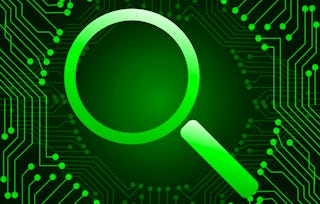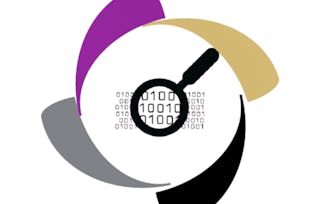Welcome to Course 2 of Introduction to Applied Cryptography. In this course, you will be introduced to basic mathematical principles and functions that form the foundation for cryptographic and cryptanalysis methods. These principles and functions will be helpful in understanding symmetric and asymmetric cryptographic methods examined in Course 3 and Course 4. These topics should prove especially useful to you if you are new to cybersecurity. It is recommended that you have a basic knowledge of computer science and basic math skills such as algebra and probability.

Mathematical Foundations for Cryptography

Mathematical Foundations for Cryptography
This course is part of Introduction to Applied Cryptography Specialization


Instructors: William Bahn
21,293 already enrolled
Included with
334 reviews
Details to know

Add to your LinkedIn profile
9 assignments
See how employees at top companies are mastering in-demand skills

Build your subject-matter expertise
- Learn new concepts from industry experts
- Gain a foundational understanding of a subject or tool
- Develop job-relevant skills with hands-on projects
- Earn a shareable career certificate

There are 4 modules in this course
Building upon the foundation of cryptography, this module focuses on the mathematical foundation including the use of prime numbers, modular arithmetic, understanding multiplicative inverses, and extending the Euclidean Algorithm. After completing this module you will be able to understand some of the fundamental math requirement used in cryptographic algorithms. You will also have a working knowledge of some of their applications.
What's included
5 videos11 readings2 assignments1 discussion prompt
A more in-depth understanding of modular exponentiation is crucial to understanding cryptographic mathematics. In this module, we will cover the square-and-multiply method, Eulier's Totient Theorem and Function, and demonstrate the use of discrete logarithms. After completing this module you will be able to understand some of the fundamental math requirement for cryptographic algorithms. You will also have a working knowledge of some of their applications.
What's included
4 videos9 readings2 assignments1 discussion prompt
The modules builds upon the prior mathematical foundations to explore the conversion of integers and Chinese Remainder Theorem expression, as well as the capabilities and limitation of these expressions. After completing this module, you will be able to understand the concepts of Chinese Remainder Theorem and its usage in cryptography.
What's included
3 videos5 readings2 assignments1 discussion prompt
Finally we will close out this course with a module on Trial Division, Fermat Theorem, and the Miller-Rabin Algorithm. After completing this module, you will understand how to test for an equality or set of equalities that hold true for prime values, then check whether or not they hold for a number that we want to test for primality.
What's included
3 videos8 readings3 assignments1 discussion prompt
Earn a career certificate
Add this credential to your LinkedIn profile, resume, or CV. Share it on social media and in your performance review.
Instructors
Offered by
Explore more from Computer Security and Networks
 Status: Preview
Status: PreviewUniversity of Leeds
 Status: Preview
Status: PreviewUniversity of London
 Status: Free Trial
Status: Free TrialUniversity of Colorado System
 Status: Free Trial
Status: Free TrialUniversity of Colorado System
Why people choose Coursera for their career

Felipe M.

Jennifer J.

Larry W.

Chaitanya A.
Learner reviews
- 5 stars
74.55%
- 4 stars
18.26%
- 3 stars
4.79%
- 2 stars
1.19%
- 1 star
1.19%
Showing 3 of 334
Reviewed on May 23, 2020
This course provided me a better insight into the mathematical foundations of crytpography.
Reviewed on May 31, 2020
Though a little difficult to understand, it is a great course for math lovers out there.
Reviewed on Aug 18, 2018
Good course, but would like some more exercises to implement the mathematics learnt.

Open new doors with Coursera Plus
Unlimited access to 10,000+ world-class courses, hands-on projects, and job-ready certificate programs - all included in your subscription
Advance your career with an online degree
Earn a degree from world-class universities - 100% online
Join over 3,400 global companies that choose Coursera for Business
Upskill your employees to excel in the digital economy
Frequently asked questions
To access the course materials, assignments and to earn a Certificate, you will need to purchase the Certificate experience when you enroll in a course. You can try a Free Trial instead, or apply for Financial Aid. The course may offer 'Full Course, No Certificate' instead. This option lets you see all course materials, submit required assessments, and get a final grade. This also means that you will not be able to purchase a Certificate experience.
When you enroll in the course, you get access to all of the courses in the Specialization, and you earn a certificate when you complete the work. Your electronic Certificate will be added to your Accomplishments page - from there, you can print your Certificate or add it to your LinkedIn profile.
Yes. In select learning programs, you can apply for financial aid or a scholarship if you can’t afford the enrollment fee. If fin aid or scholarship is available for your learning program selection, you’ll find a link to apply on the description page.
More questions
Financial aid available,

